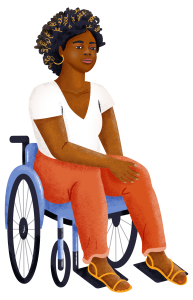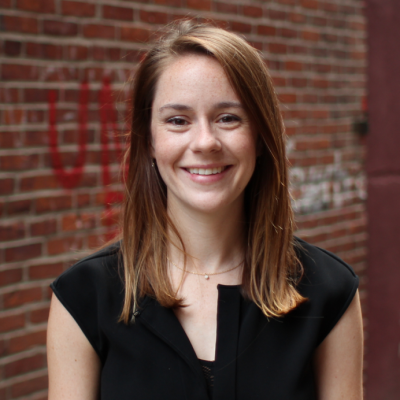Black people in the United States face persistent and disproportionate barriers to accessing high-quality, person-centered abortion care compared with their White counterparts. These barriers are rooted in systemic racism, related structural inequities (e.g., poverty), and a healthcare system that fails to center the needs, preferences, and lived experiences of Black people and communities.
Yet, researchers and advocates rarely ask Black people what they desire from abortion care. In turn, it remains unclear whether Black people’s preferences are reflected in how clinicians deliver abortion care to Black patients. It is critical to identify Black people’s care-related preferences and then evaluate the feasibility of implementing these desires so that we can create more equitable and effective models of abortion care that affirm the dignity, autonomy, and well-being of Black communities.
A quick note on language.
At REAL, our goal is to ensure our research is equitable and inclusive of everyone’s experience. That’s why we say Black people or patients and avoid using gendered language that could exclude people who do not identify as women. Our intention is not to erase anyone’s experience or identity, but instead to ensure everyone feels like they belong and their voice matters.
Our Research
We are using a mixed-methods design to investigate abortion care preferences among pregnancy-capable Black people in the United States. Our data collection is national but also oversamples people from the US Midwest. This allows our work to have both national implications and to capture the experience of Midwestern Black people, who experience uniquely high levels of socioeconomic inequality and wide state-level variation in structural and legal barriers to abortion.
Principal Investigator: Tiffany Green, PhD
Phase 1: Interviews with Black abortion seekers and those who support them
We spoke with 15 Black people who had a recent abortion and 15 people who support Black abortion seekers (e.g., abortion doulas, healthcare providers, researchers, abortion fund workers). Interviews focused on abortion care decision-making.

Phase 2: Survey with pregnancy-capable Black people
Informed by the qualitative data collected in Phase 1, we designed a survey that includes a discrete choice experiment to examine abortion care preferences among a national sample of pregnancy-capable Black people aged 15-45.

Project Status
In 2024, we completed data collection for Phase 1: Interviews with Black abortion seekers and those who support them. Our team has spent most of 2025 analyzing and interpreting the qualitative data from these 30 interviews to inform the design of the forthcoming data collection in Phase 2: Survey with pregnancy-capable Black people.
Phase 1: Interviews with Black abortion seekers and those who support them

In 2024, we interviewed 15 people aged 20-38 who identified as Black and reported having an abortion in the last 5 years. We recruited participants with support from abortion clinics, abortion funds, and community based organizations. These participants were diverse in their backgrounds and abortion experiences.
We additionally spoke with 15 “abortion facilitators” who support people from Black communities access abortion. We defined abortion facilitators as abortion service delivery workers, abortion fund and practical support workers, doulas, and researchers.
When envisioning the ideal abortion experience, participants imagined:
- abortion being supported in social systems (e.g., insurance coverage; embedded into primary care; clear and reliable abortion information widely available);
- abortion care being safe, respectful, and meeting patients’ needs (e.g., holistic, expansive pain management; facility policies that don’t create barriers; services and information available in preferred language and format);
- the abortion seeker being physically and emotionally supported (e.g., doula or mental health support; help with travel and caregiving responsibilities).
Preliminary Results:
“...abortion should be free. It should be in [your home state]. It should be easily accessible. It should give you some options. It should be autonomous in nature. It should come with wraparound services. You should be able to say, ‘hey, I need an abortion, but also, I need food, housing, childcare.’”
Interview Participant
Phase 2: Survey with pregnancy-capable Black people
We designed a survey for pregnancy-capable people who identify as Black or African American, are aged 15-45 years, and live in the United States. The survey will include 1500+ people; it will be sent electronically by a survey research firm, who ensures consent and compensation of participants. The survey is centered on:
- Voices of abortion seekers and facilitators (e.g., interview data)
- Established data (e.g., prior research, available reports)
- Community (e.g., conversations with abortion funds, coalition priorities)

The survey includes a discrete choice experiment (DCE) to help us understand what people value when making decisions about abortion care. Our DCE will ask survey participants to make decisions based on racial and gender concordance with the healthcare provider, abortion type (medication or procedure), appointment type (in person or telehealth), and length of process (1-14 days).
The survey launches this Fall/Winter, and we anticipate preliminary results in early 2026.
- What is a discrete choice experiment?
- What is racial and gender concordance?
- What else is on the survey?
A discrete choice experiment (DCE) is a type of survey researchers use to understand what people value when making decisions. Participants are shown different sets of options for things like health treatments (or products, or services) that vary in specific features (such as cost, convenience, or effectiveness). They are asked to choose their preferred option from each set, similar to how they might make choices in real life. By analyzing these choices, researchers can see which features matter most to people and how much they’re willing to trade off between them.
Dr. Green describes why this methodology is well suited for our research centered on Black people’s preferences in this blog post.
Concordance, in this case, is about “having the same identity”. We are curious how Black abortion seekers value having the same (or similar) identities as their healthcare provider, specific to race and gender.
Racial concordance, in this case, is when the patient and healthcare provider share the same race. Alike, gender concordance is when the patient and healthcare provider share the same gender.
Research shows that patients value shared race and gender in their healthcare provider. The benefits can include increased trust and communication, increased patient satisfaction, and improved health outcomes. Concordant care may address health disparities.
In addition to the discrete choice experiment and questions about the participant’s demographics, we include questions about their:
- General health status
- Healthcare access and preferences
- Abortion knowledge and stigma
Learn more about our research
Designing Person-Centered Abortion Care: What Matters Most to Patients
In the first of two blog posts, Senior Scholar Dr. Tiffany Green explores what a truly person-centered approach to understanding abortion care in health services research might look like.

Harnessing Discrete Choice Experiments to Identify Abortion Patients' Care Preferences
In the second of two blog posts, Senior Scholar Dr. Tiffany Green explores a person-centered approach to abortion care through the lens of discrete choice experiments, a method that brings patients’ relative preferences to the forefront.

What about other healthcare preferences outside of abortion?
We are just getting started! We envision expanding this body of research to center Black peoples’ experiences and preferences around other components of reproductive health — including contraception, (in)fertility care, perinatal care, birth, and beyond.
If you are a funder who is interested in learning more about our vision, email us at reproequityactionlab@wisc.edu







